ROTC is not only nurturing the future officers of the nation, but also breeding a group of leaders.
“Initially there is always that little bit of nervousness anytime you get thrown into a leadership role,” said Cadet Jared Dieckman, a student at the University of Wisconsin, Lacrosse.
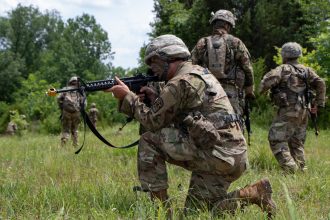
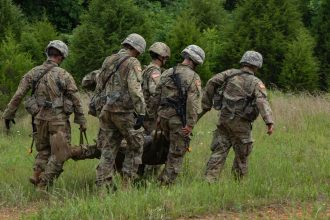
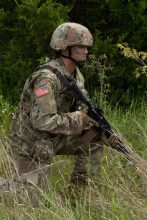
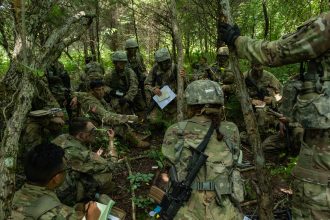
Dieckman was the platoon sergeant (PSG) for an area reconnaissance mission during their field training exercise (FTX), panther phase. He said once he started, all that nervousness went away.
“You’re basically the second in command. You have your own role and your own individual style, but ultimately you are following the orders of your platoon leader,” said Dieckman. “So, when I look at the platoon sergeant their job is the accountability factor. They are just making sure everyone in the platoon has their equipment and is set on water. They brief the sustainment. They have to be able to sustain the platoon so they can work well and efficiently as an entire unit. I think that is the most important part of the job.”
The platoon sergeant is also responsible for keeping track of the unit’s casualties and corresponding with the medical teams to help get the injured to medical services.
“Personally, I think I did alright. I had a really good [platoon leader]. She covered her portion of her [operations order] phenomenally. She set me up for success,” said Dieckman.
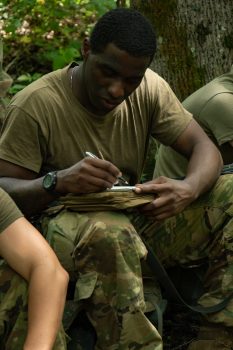
The platoon sergeant along with the platoon leader is responsible for the dissemination of information to the platoon.
Cadet Keri Eberly, a student at Purdue University, was the platoon leader for the mission with PSG Dieckman.
“At the beginning it was definitely nerve racking even though we have prepared a lot for it. I just took a moment with my Platoon Sergeant Dieckman. We stood off to the side, I plotted my points, took a couple deep breaths and was like alright, it’s mission go time,” said Eberly. “So, from that point on, I was like, this is what we have to do, this is what the ranger hand book is guiding me along when I miss a step. This is how we are going to go out and we are going to execute the recon and that’s what we did.”
Eberly’s advice to Cadet’s taking on a leadership role in the field is to read the Ranger’s Handbook ahead of time.
“Basically, it has a breakdown of the doctrine of how to do something,” said Eberly. “So, if I forgot a step or I wasn’t sure, I could go back to that book and be like, okay I’m at this point in the plan, this is what I need to do next. It was a little bit of a safety net because I knew what I was doing, but I wanted to make sure.”
She mentioned that she liked being a leader during this phase because now she knows what to expect if she is chosen to be a leader again in the last phase of FTX.




